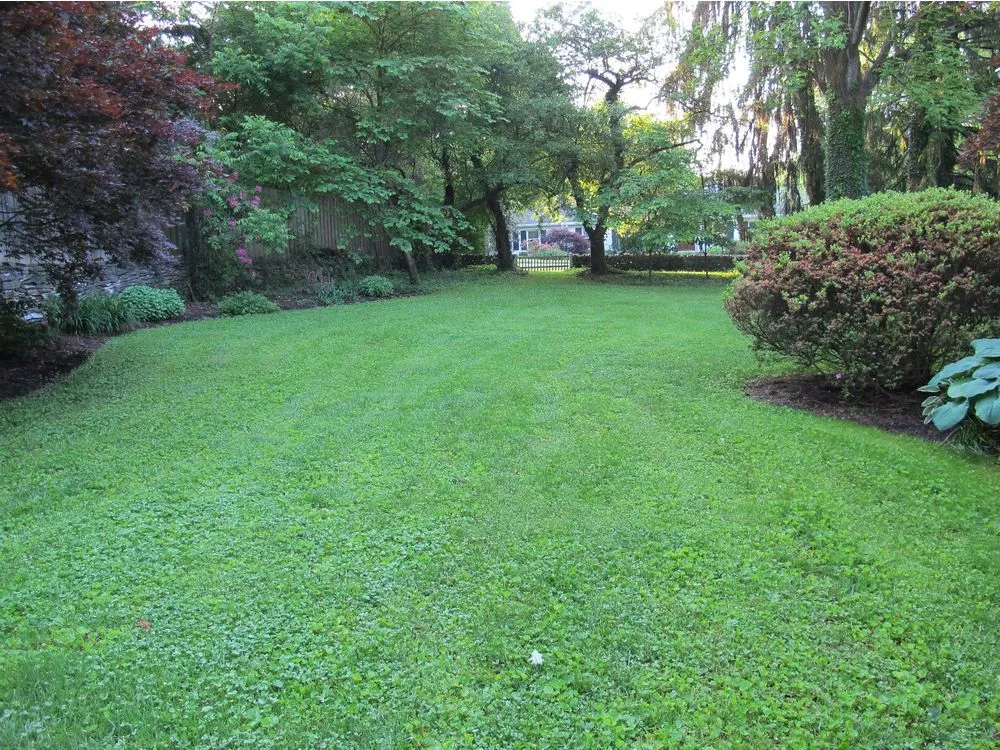Clover lawns can replace the traditional grass yard for a more natural look. They also require less maintenance because they only need to be mowed three to four times a year. Clover also fertilizes itself, eliminating the need for a chemical application.
To start, mix clover seeds with some compost, soil, or sand for easy spreading. Spread the seed in the early spring when the ground is warm and dry.
They’re Easy to Maintain
Clover grows quickly and can crowd out weeds. It also attracts honeybees, which are essential to sustaining fruit trees, flowers and vegetable gardens. Clover also helps to break down organic matter in the soil, so it provides a natural form of fertilizer. And its nectar is a favorite food of many beneficial insects, including parasitoid wasps that prey on pests that damage turfgrasses and crops.
In addition, clover lawns require less mowing than traditional grass lawns. And they often do well in light shade, making them a great alternative for homeowners with less sunny yards.
Unlike grass, which can grow to two feet high and produce unsightly seed heads when it’s not regularly mowed, clover typically only gets up to eight inches tall.
Clovers are legumes, so they help to fix nitrogen in the soil. They partner with bacteria to convert nitrogen gas from the air into a form that plants can use. This allows them to reduce the amount of nitrogen fertilizer needed in a lawn, according to Boyle.
And because clover is a natural weed-fighter, it’s easier to maintain than a traditional grass lawn. “The clover will naturally pull weeds and other unwanted vegetation out of the soil,” explains Boyle. It’s also a natural insect repellent, which can make it an ideal choice for yards with children or pets who like to run and play in the yard.
But if your family has allergies or aversions to bees, then a clover lawn might not be the right fit for you. Also, some homeowner associations or municipal bylaws may have restrictions on what can be grown in a residential yard.
Regardless, many homeowners are now choosing to experiment with a clover lawn. It’s relatively inexpensive compared to grass seeds and requires little, if any, fertilizer to stay healthy. Clover lawns are also adaptable to a range of conditions, such as compacted soil and light shade. And because of their short germination time, they’re a good option for early spring planting. If you’re interested in giving it a try, contact a local lawn care professional to get started.
They’re Low-Maintenance
Clover lawns can take care of themselves after they get established, which is a great thing for people who want a low-maintenance option. Once the clover grows in, you only need to mow it a few times a year and water it sparingly during periods without rain. “Clover can hold water very well, and it’s also very drought tolerant,” Murphy says. “It can stay greener for longer than a traditional grass lawn.”
Clovers are legumes, which means they’re in the same family as beans and peas. They take nitrogen from the air and transfer it to the ground, which helps other plants in the area grow. As a result, they don’t need synthetic fertilizers to thrive and can help cut down on the amount of chemicals that are introduced into the environment and waterways1.
Another way that clover lawns can save you money is by reducing your water bill. Clover lawns need less water than typical turfgrass lawns because they absorb moisture from the soil more effectively. “Clover roots penetrate into the soil much deeper, so they’re able to draw water more efficiently,” Murphy says. “That’s why a clover lawn can stay greener in dry conditions.”
Additionally, a clump of clover has more surface area than a grass lawn. This helps prevent mud pits from forming after rainfall because the clover is covering more of the ground. Clover can also tolerate the cold and hot weather, making it an ideal choice for people who live in climates that experience extreme changes throughout the year.
However, it’s important to note that clover is a short-lived perennial, meaning that you may need to reseed your yard every two to three years. While this isn’t a problem in and of itself, it can be an inconvenience for some people.
To ensure your clover lawn stays lush and healthy, you should test the pH of your soil (using a home kit or by hiring a professional) to see what kind of amendments it needs. Once you know the results, make the necessary adjustments to bring your soil into a range where clover thrives.
They’re Eco-Friendly
Clover is in the legume family and takes nitrogen from the air to help improve soil and plants around it. This helps reduce the need for synthetic fertilizers. It also grows very quickly, crowding out broadleaf weeds like dandelions and ragweed, which often require herbicides for eradication. Clover lawns also attract beneficial insects that prey on pests, further reducing the need for chemicals in the yard.
The clover itself emits a pleasant fragrance that many find pleasing when walking through the yard, mowing or picnicking. This fresh, natural scent is a welcome change from the chemical-laden odors associated with traditional grass lawns and their accompanying chemical fertilizers.
Clovers can be added to existing turfgrass or planted on their own. If planting them alone, mowing the existing lawn short and using a thatch rake or power dethatcher to remove any buildup will help prepare it for clover. Then, spread the clover seed by hand or with a broadcast spreader for larger areas. It’s best to plant pure clover seed, rather than mixing it with other types of grass or perennial seeds, to ensure the best germination rate. After spreading, water the soil regularly until it’s established. It may take two to three weeks before the clover sprouts.
If you are adding Clover lawns to your landscape, keep in mind it doesn’t hold up as well under heavy foot traffic as a traditional Clover lawns, so expect to reseed it every few years. It’s best to do this in the early spring in your area’s hardiness zone.
Another thing to consider before switching to a clover lawn is that it can attract bees, which can cause a problem for any family members with bee allergies. But, there’s a simple solution: Simply mow the clover before it flowers! This will keep the bees away and prevent them from stinging family members. If you’re interested in converting to a clover lawn, contact Eden for guidance on how to get started and keep it beautiful throughout the year! We offer all the lawn services you need to create a healthy, lush landscape that your family will love.
They’re Affordable
The sprigs of clover that sprout throughout your yard are a lovely reminder that you don’t need to spend lots of money to have an inviting garden. Clover seeds are cheap and readily available at home improvement centers. Adding a clover lawn is cheaper than planting sod, and it’s easier to maintain. A clover lawn requires less watering and mowing than a grass lawn, plus it’s a natural fertilizer that supports biodiversity, which is a win for the environment.
Grass lawns often require nitrogen-rich fertilizers that can attract insects and disease. Clover, on the other hand, is a natural plant that fixes its own nitrogen and can thrive without those chemicals. It also stands up to insect pests, reducing the need for herbicides.
Clover lawns is a great choice for families with pets, too. Unlike turfgrass, Clover lawns can tolerate the wear and tear of kids playing outdoors and pets running around. Clover also supports more biodiversity than traditional grass lawns, because it can be used by rabbits, groundhogs, deer and other wildlife for food, shelter and cover.
In contrast, a lawn that’s entirely comprised of grass won’t support these creatures and can actually be a deterrent for many wildlife species because it doesn’t provide them with a safe place to live and feed.
Clover lawns also support pollinators. As they bloom, they draw in honeybees and other bees, as well as ladybugs, minute pirate bugs, parasitoid wasps and lacewings. Many of these beneficial insects are at risk from habitat loss and other stressors, so attracting them to your landscape is an important step to helping save their numbers.
Though it’s not a perfect solution for every homeowner, a clover lawn is an ideal choice for those looking to challenge the notion that yards need to be monocultures of sterile, uniform turfgrass. As more homeowners embrace this concept, a grass-free yard is sure to grow in popularity.




